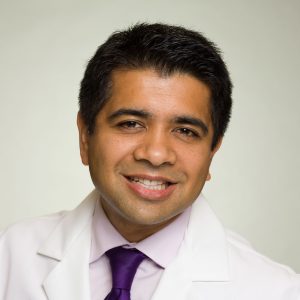
Balancing Service and Science: How Military Experience Shapes Dr. Avishek Kumar’s Approach to Cancer Care
For Avishek Kumar, MD, the journey into cancer care began with a deep family history of healthcare and took shape during his years of military
HIPAA Alert: Potential Data Breach Learn More
Questions on Oncology, Hematology and/or Infusion Clinical Services due to COVID-19 Crisis – CALL 833-698-1623
Important Information for Our Patients Regarding the Coronavirus.
RCCA Providing Area Cancer Patients with Access to Care During Coronavirus Outbreak
RCCA Offering Patients Virtual Visits During Coronavirus Pandemic
Cancers that develop in the throat, mouth, and nose region are collectively known as head and neck cancer. These can have a significant impact on a person’s quality of life. Fortunately, many of their risk factors are preventable. Regional Cancer Care Associates (RCCA) treats multiple cancer types and blood disorders at locations near you in New Jersey, Connecticut, Massachusetts, and the Washington, D.C., area. Following, we discuss head and neck cancer, including risk factors, symptoms, and treatments.

Head and neck cancer isn’t a single kind of cancer. Instead, it is a category encompassing multiple cancer types that develop in the throat, nose, mouth, sinuses, or larynx. They include:
It is worth noting that cancers in the brain, eye, esophagus, thyroid gland, and skin are not usually classified as head and neck cancers, despite their location in the same region.
Oncologists aren’t always sure what causes head and neck cancer. However, there are several known risk factors, some of which are preventable. By reducing these factors, individuals can effectively reduce their risk of developing head and neck cancer. The risk factors include:
The two most significant risk factors for head and neck cancers are alcohol and tobacco use. This includes exposure to secondhand smoke, as well as the use of chewing tobacco, “snuff,” or smokeless tobacco. The risk is also cumulative; people who use both tobacco and alcohol have a greater risk of cancer than those who only use one or the other.
Human papillomavirus, or HPV, is a common sexually transmitted infection (STI). It has been linked to a higher prevalence of oropharyngeal cancer, though not any other cancer types. In fact, it may be responsible for up to 70% of all oropharyngeal cancer cases in the United States. The cancer can develop years after the initial HPV infection.
Head and neck cancers also have a variety of other risk factors, including radiation exposure, Epstein-Barr virus infection, and genetics. Individuals can speak with their physician about their cancer risk.
Symptoms of head and neck cancer don’t always appear in the early stages. When symptoms do develop, they vary depending on the cancer’s location and type. However, common ones include:
Though these symptoms are sometimes caused by cancer, they may also be related to other conditions. Individuals experiencing any of these symptoms, particularly if they are pronounced, arose suddenly, or have persisted for an extended period, or who have concerns about head and neck cancer, should consult their doctor or dentist.
The recommended treatment for head and neck cancer depends on the type and location of the cancer. The cancer stage, patient’s age, and overall health are also factors in treatment planning. Options include:
There are three primary objectives of cancer treatment. First, it aims to remove the disease or control its growth. Second, it looks to preserve the function of any areas or organs affected by cancer, if possible. Third, it helps the patient return to normal activities. Depending on the extent of the cancer, this may include reconstructive therapy or a prosthesis.
Receiving any cancer diagnosis can feel overwhelming. Asking questions and discussing them with a cancer care team can help patients understand their diagnosis better. This empowers them to make informed decisions about their care, helping the RCCA team develop a plan that fits the individual’s unique needs. Questions to ask the doctor include:
It may be helpful to write down questions ahead of time and to take notes while speaking with the doctor. Many people may also wish to bring a family member or friend for additional support.
To learn more about head and neck cancer, get in touch with Regional Cancer Care Associates. RCCA specialists provide care to more than 30,000 new patients and 265,000 established patients each year. RCCA physicians offer patients innovative therapies, including immunotherapies and targeted therapy, cutting-edge diagnostics as well as access to approximately 300 clinical trials in community-based centers close to home.
What is head and neck cancer?
Head and neck cancers are several types of cancer that develop in the throat, nose, mouth, sinuses, or larynx. This category does not include brain, eye, thyroid, esophagus, or skin cancers.
Does tobacco or alcohol use cause head and neck cancer?
Head and neck cancer risk increases with tobacco and alcohol use. People who use both tobacco and alcohol are at higher risk of cancer than those who use only one or the other. People who use either tobacco or alcohol are at higher risk than those who use neither.
Does HPV cause head and neck cancer?
Human papillomavirus, or HPV, has been tied to a much higher risk of oropharyngeal cancer. It does not increase the risk of other cancer types.
What are treatments for head and neck cancer?
Treatment options include surgery, chemotherapy, radiation therapy, immunotherapy, targeted therapies, and combinations of the above.
How can I reduce my risk of head and neck cancer?
People can reduce their risk of cancer by reducing or eliminating their alcohol and tobacco consumption, getting the HPV vaccine, and appropriately using condoms and dental dams.
For more information or to schedule an appointment,
call 844-346-7222. You can also schedule an appointment by calling the RCCA location nearest you.

For Avishek Kumar, MD, the journey into cancer care began with a deep family history of healthcare and took shape during his years of military

Physical therapy is well known for its role in helping patients recover from sports injuries, surgeries, and orthopedic conditions. Many people may not realize that

Colon cancer is often treated with surgery, which can have a long recovery period. When patients understand what to expect, they feel more confident about

Regional Cancer Care Associates is one of fewer than 200 medical practices in the country selected to participate in the Oncology Care Model (OCM); a recent Medicare initiative aimed at improving care coordination and access to and quality of care for Medicare beneficiaries undergoing chemotherapy treatment.